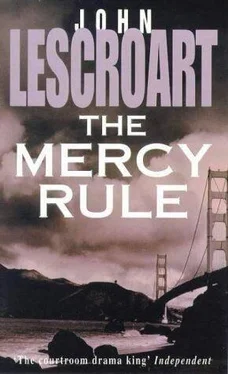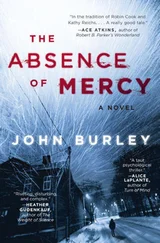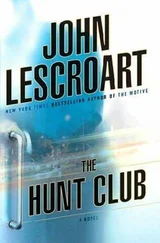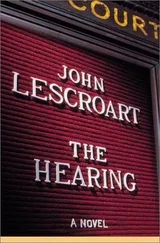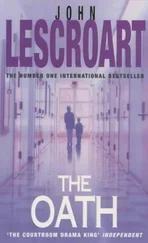John Lescroart - The Mercy Rule
Здесь есть возможность читать онлайн «John Lescroart - The Mercy Rule» весь текст электронной книги совершенно бесплатно (целиком полную версию без сокращений). В некоторых случаях можно слушать аудио, скачать через торрент в формате fb2 и присутствует краткое содержание. Жанр: Триллер, на английском языке. Описание произведения, (предисловие) а так же отзывы посетителей доступны на портале библиотеки ЛибКат.
- Название:The Mercy Rule
- Автор:
- Жанр:
- Год:неизвестен
- ISBN:нет данных
- Рейтинг книги:5 / 5. Голосов: 1
-
Избранное:Добавить в избранное
- Отзывы:
-
Ваша оценка:
- 100
- 1
- 2
- 3
- 4
- 5
The Mercy Rule: краткое содержание, описание и аннотация
Предлагаем к чтению аннотацию, описание, краткое содержание или предисловие (зависит от того, что написал сам автор книги «The Mercy Rule»). Если вы не нашли необходимую информацию о книге — напишите в комментариях, мы постараемся отыскать её.
The Mercy Rule — читать онлайн бесплатно полную книгу (весь текст) целиком
Ниже представлен текст книги, разбитый по страницам. Система сохранения места последней прочитанной страницы, позволяет с удобством читать онлайн бесплатно книгу «The Mercy Rule», без необходимости каждый раз заново искать на чём Вы остановились. Поставьте закладку, и сможете в любой момент перейти на страницу, на которой закончили чтение.
Интервал:
Закладка:
In the course of the trial Hardy would call his client by his first name, much as Soma had referred to him only as the defendant. ‘It’s true that Graham was a regular visitor to his father’s apartment. He went there to administer shots for Sal’s pain, but he also went there to visit, to take his father to dinner, to organize and clean and help with the laundry. He did this regularly for nearly two years, and much more frequently in the last six months of Sal’s life, as the Alzheimer’s progressed and the cancer in Sal’s brain became more debilitating.
‘Over the last few weeks Sal had suffered some rather more serious bouts of forgetfulness. Sal was terrified of being placed in a nursing home. He didn’t much trust the system. Incidentally, he passed that trait along to his son.’
Here Hardy risked an insider’s smile, confident that at least some of these jurors would share the feeling that bureaucrats were perhaps not the earth’s most exalted life form.
‘So what have we got here? We’ve got a simple Italian fisherman who didn’t want to end his life in lonely destitution. On May eighth he was lucid and spoke to his son. He had some money in the safe under his bed, money he’d saved for a long time. His son should take it and put it in a safe place so he could use it for pain medication, for Sal’s rent, for private nursing care in his apartment if it came to that before the cancer killed him. Anything, Sal said, just don’t leave him alone in a home to die.’
Freeman, Graham and himself had argued for hours over the entire Singleterry question, and finally had decided that Hardy’s instincts were right. Twenty-two hundred dollars in ads all over the country had resulted in a whole lot of responses, but no Joan. Sal’s request to Graham might have been genuine – certainly Graham seemed to believe it – but it wouldn’t play here before the jury. So the defense team had reached a consensus: Joan Singleterry must have been someone in Sal’s past, dredged up by the Alzheimer’s, by now quite possibly dead. She wasn’t going to get mentioned at the trial.
Hardy took a beat, realizing as he did that his legs were now firm under him. It was a relief. He looked up and down the panel, making some eye contact where it seemed natural.
‘So, yes, Graham had his father’s money. We will show you that it was on that day, May eighth, that Graham took this money and the baseball cards to his safety deposit box.
‘On May ninth his father called him again. Twice. The pain was terrible. Could Graham come right over when he got the message? The dutiful and caring son, he did go to his father’s apartment one last time.’
And, Hardy thought, here is where it gets tricky.
He took a deep breath. ‘You’re going to learn that Sal Russo died of an intravenous morphine injection. He had had a few drinks. Dr Strout, our city and county coroner, is going to tell you that his death was quick and relatively, if not completely, painless. Sal’s doctor had earlier prescribed for him a form called a “DNR.” It stands for “do not resuscitate.” It’s kind of like a “Medic Alert” bracelet that instructs paramedics to let a person die if that is nature’s course. Sal had his DNR sticker out when he was found. He was a very sick man, in great pain every day, terrified that he was losing the last of his mind, afraid of being sent to a home. This was the man who died. The victim. His son Graham loved him.
‘No murder for money was done here, no murder at all. The prosecution cannot and will not prove to you that Graham Russo killed his father. The evidence will not show that Graham is guilty, because despite all the prosecution’s desperate rhetoric and their urge to make headlines, he is innocent.’
Hardy paused, nodded at the empaneled jurors, and realized that he was done.
‘That little fucker’s pretty good.’ Freeman contentedly chewed his lo mein, his chopsticks poised for the next attack. They were sitting in the holding cell, the only place they could talk to Graham privately during recesses and lunch breaks. The cell was ‘furnished’ with two concrete shelves that served as benches built into the walls, and an open toilet. There was nothing for an inmate to steal or vandalize.
The place was littered with cardboard cartons from the takeout that Freeman had ordered up earlier in the day, as a special treat, from Chinatown. There were also containers of vinegar, Mongolian fire oil, packets of soy and other sauces, extra chopsticks, paper plates and napkins.
‘Gil’s not dumb. He was the star at Draper’s.’ Graham was dipping a duck leg into some plum sauce.
Hardy’s own appetite had disappeared. Even without the stink of the holding cell, ripe and cloying, his opening statement had left his stomach hollow, unsettled. He couldn’t imagine putting any food in it. Freeman noticed; he raised his eyes from his lunch. ‘You all right, Diz?’
Standing at the bars, arms crossed over his chest, looking back toward the courtroom, Hardy lifted his shoulders. ‘Nerves.’
‘You did fine, laid out the boundaries, drew the lines.’ Freeman popped a pot sticker, whole, into his mouth, chewed a moment. ‘It’s all Alison Li. There is no evidence that Graham put the money in the bank within months of Sal’s death. That’s it. We don’t have to prove anything except that. They’ve got to prove what they’ve got no evidence for. And they can’t do that.’
‘Right.’ Graham was all agreement, back to a carton he’d missed on his first pass. ‘Can’t be done.’
Hardy gave them both a weary smile. ‘Well, then, that’s settled. I think I’ll go say hi to my wife.’
‘Bring her in here,’ Freeman said.
Hardy threw a quick glance around at the depressing cell. Shaking his head, Hardy was moving toward the door. ‘I don’t think so.’
She’d waited in the gallery, now nearly deserted during the lunch hour. Greeting him with a kiss on the cheek, she read his mood. ‘Dismas, it wasn’t that bad.’
He pulled down the seat next to her and sat. ‘I can see the Chronicle headline tomorrow: “Russo Defense Not That Bad.” ’
‘It was better than that.’ She put a hand on his knee and squeezed it. ‘You’ll do fine. You’re doing fine. But I notice our friend Abe isn’t hanging around.’
Frannie knew about the original disagreement, of course, but the summer had intervened – the kids home all day, classes and camps and soccer and baseball – and she’d been assuming it had more or less blown over. ‘Are you still in a fight?’
Hardy shrugged. ‘I guess so.’
‘You ought to go see him.’
‘I’ve tried. I don’t know what else I can do. He thinks I’ve sold out somehow, that I’m not the same person.’
‘But you are.’
‘No. I’m defending somebody he arrested not once, but twice. He really believes Graham’s a killer, and not some kind of a mercy killer either. A bona-fide stone murderer. Which is, of course, how cops are supposed to think.’
‘But he’s always been a cop.’
‘I know, and I’ve always gotten the benefit of the doubt. But now Abe thinks I’ve sold myself a bill of goods too – that Graham suckered me and I’m an idiot for believing him.’
Frannie crossed her arms and looked away.
‘What?’
‘Nothing. Just that I hope you didn’t. You’re not.’
Hardy shook his head. ‘No way, I’m not.’ He checked the courtroom, making sure it was otherwise empty. ‘Look at Evans, she’s a cop too.’
‘But she’s in love with him.’
‘She wouldn’t have let herself get there if she didn’t think he was innocent.’ He took in his wife’s expression. ‘I love that thing you do with your eyes when you think I’m full of it.’
Читать дальшеИнтервал:
Закладка:
Похожие книги на «The Mercy Rule»
Представляем Вашему вниманию похожие книги на «The Mercy Rule» списком для выбора. Мы отобрали схожую по названию и смыслу литературу в надежде предоставить читателям больше вариантов отыскать новые, интересные, ещё непрочитанные произведения.
Обсуждение, отзывы о книге «The Mercy Rule» и просто собственные мнения читателей. Оставьте ваши комментарии, напишите, что Вы думаете о произведении, его смысле или главных героях. Укажите что конкретно понравилось, а что нет, и почему Вы так считаете.
